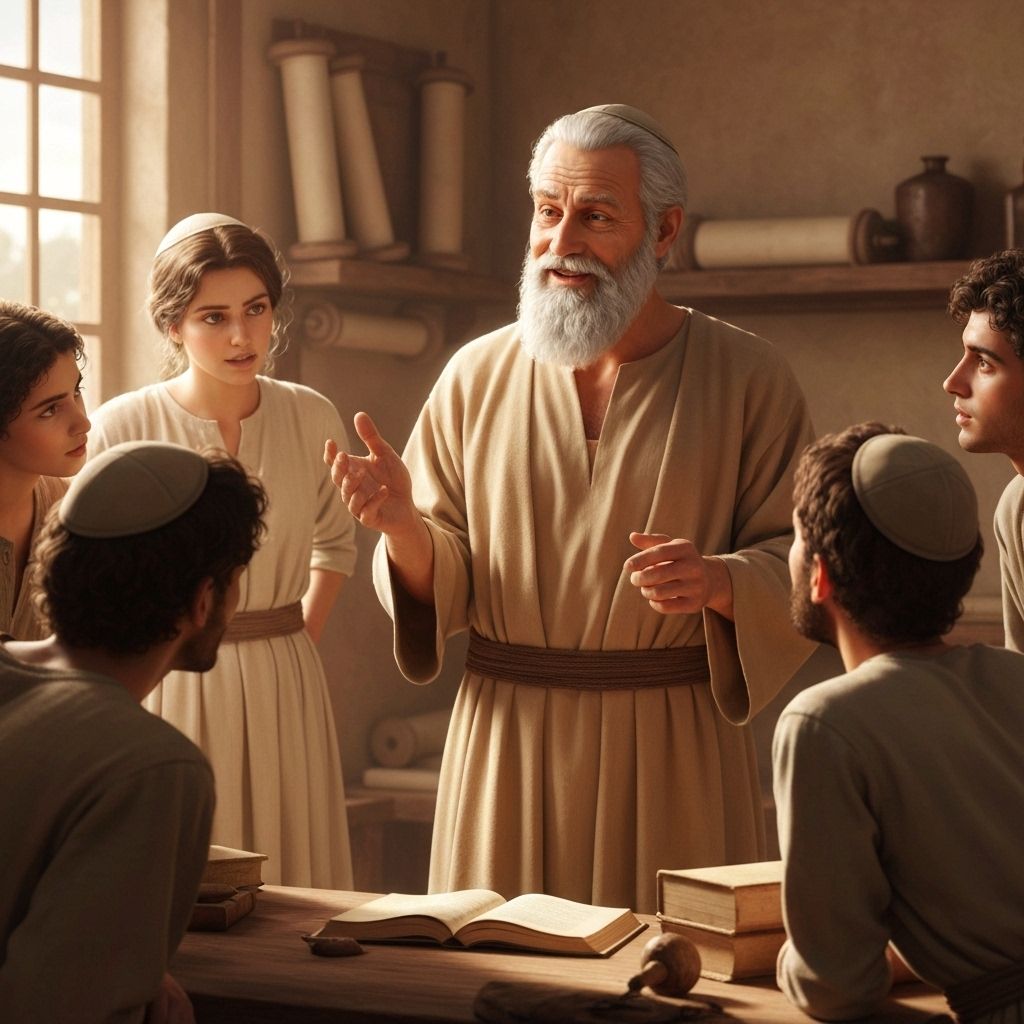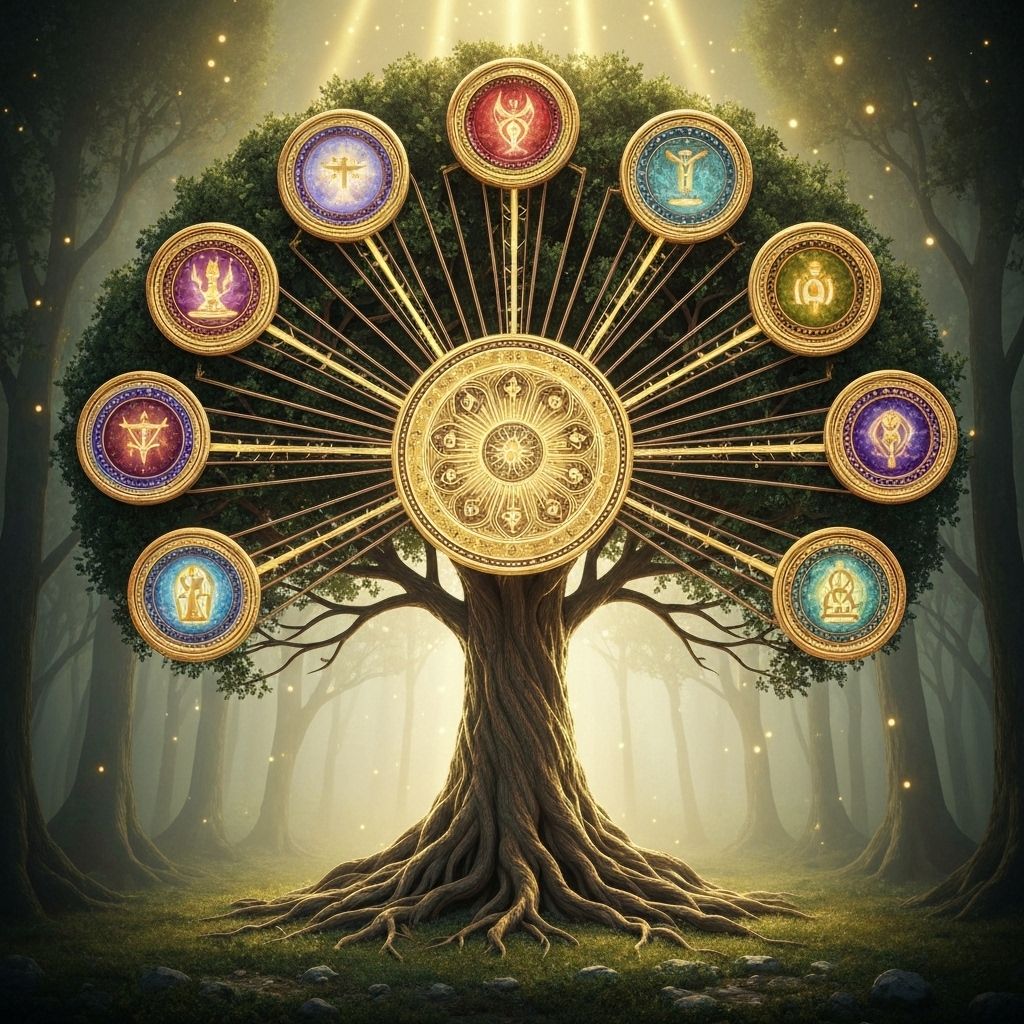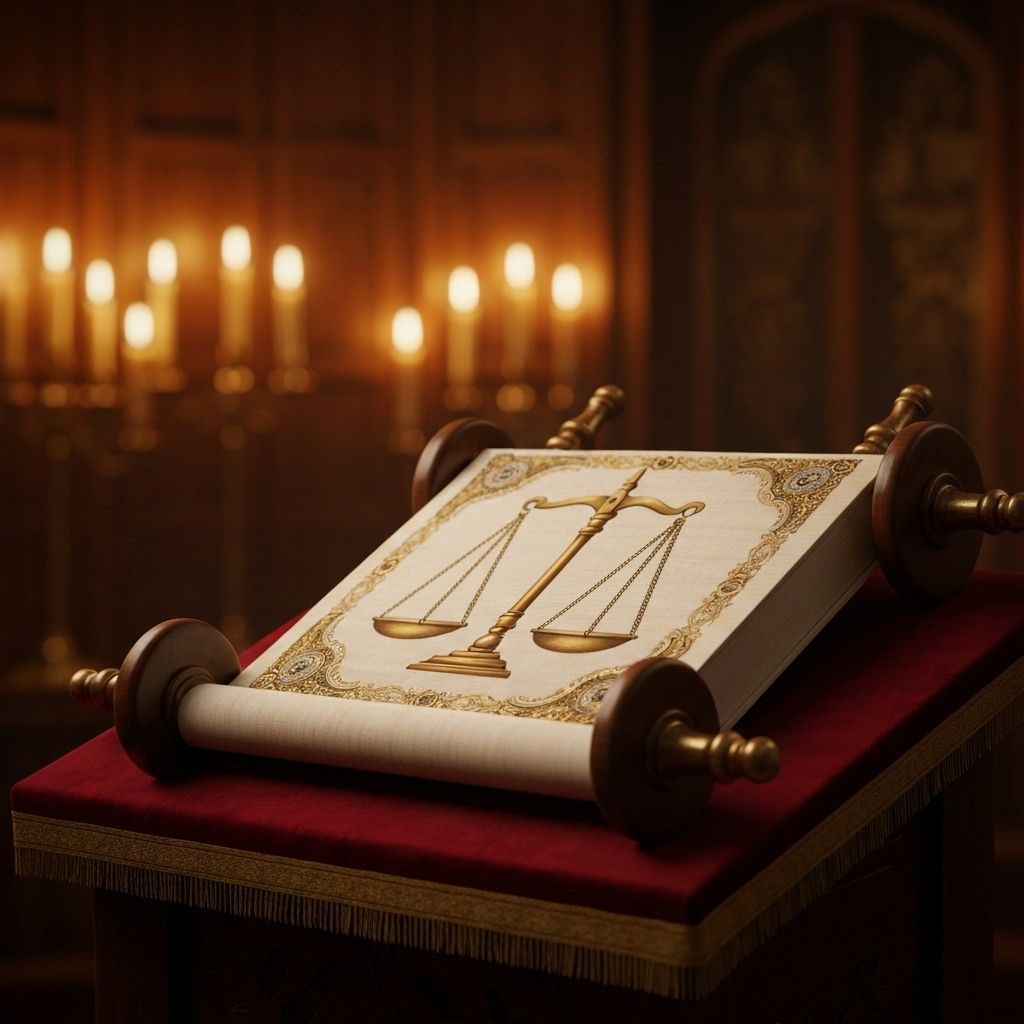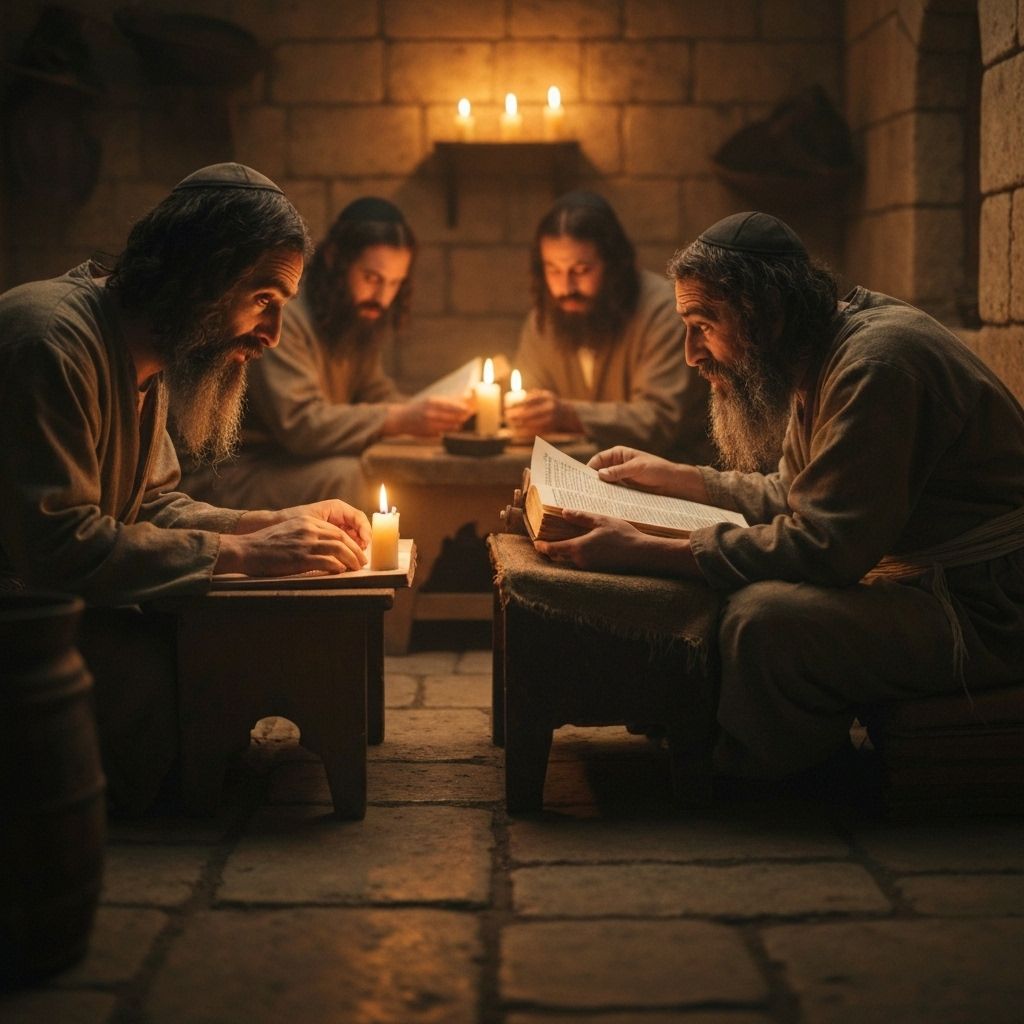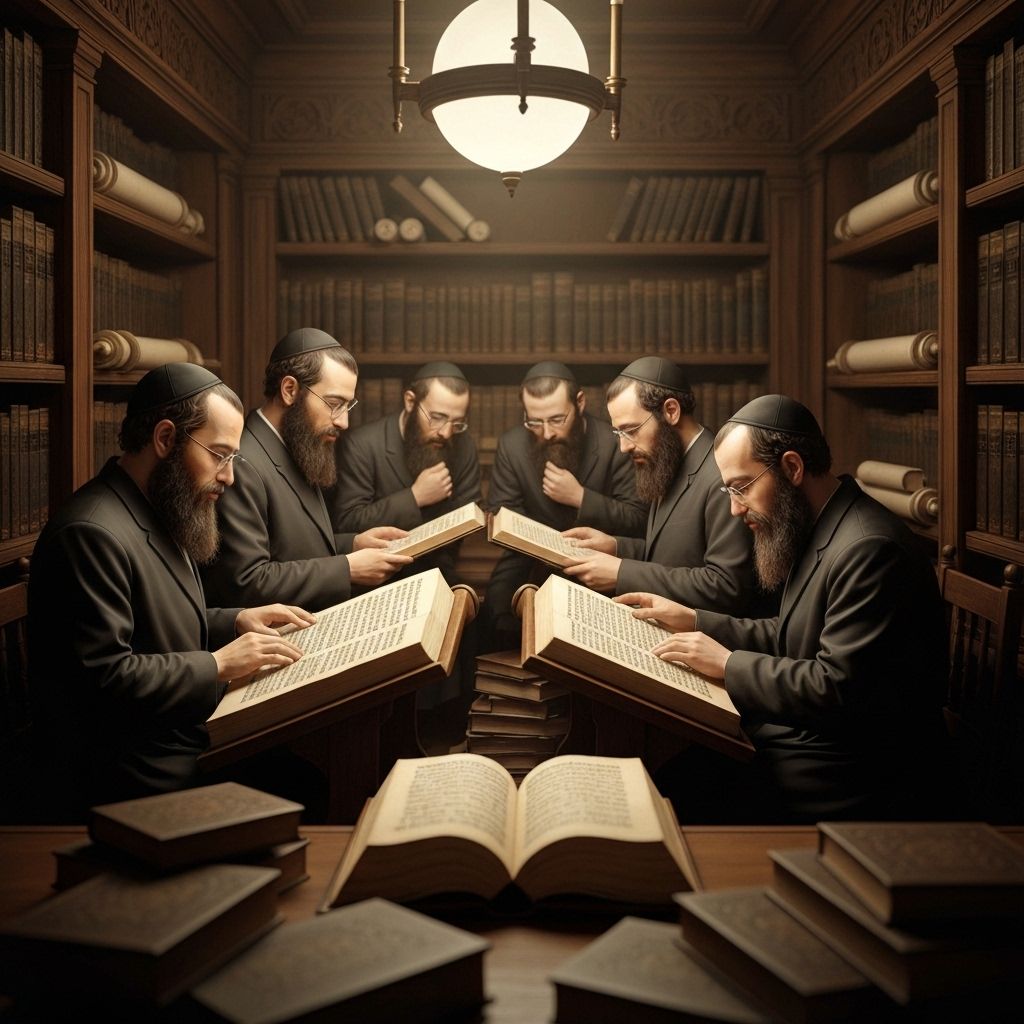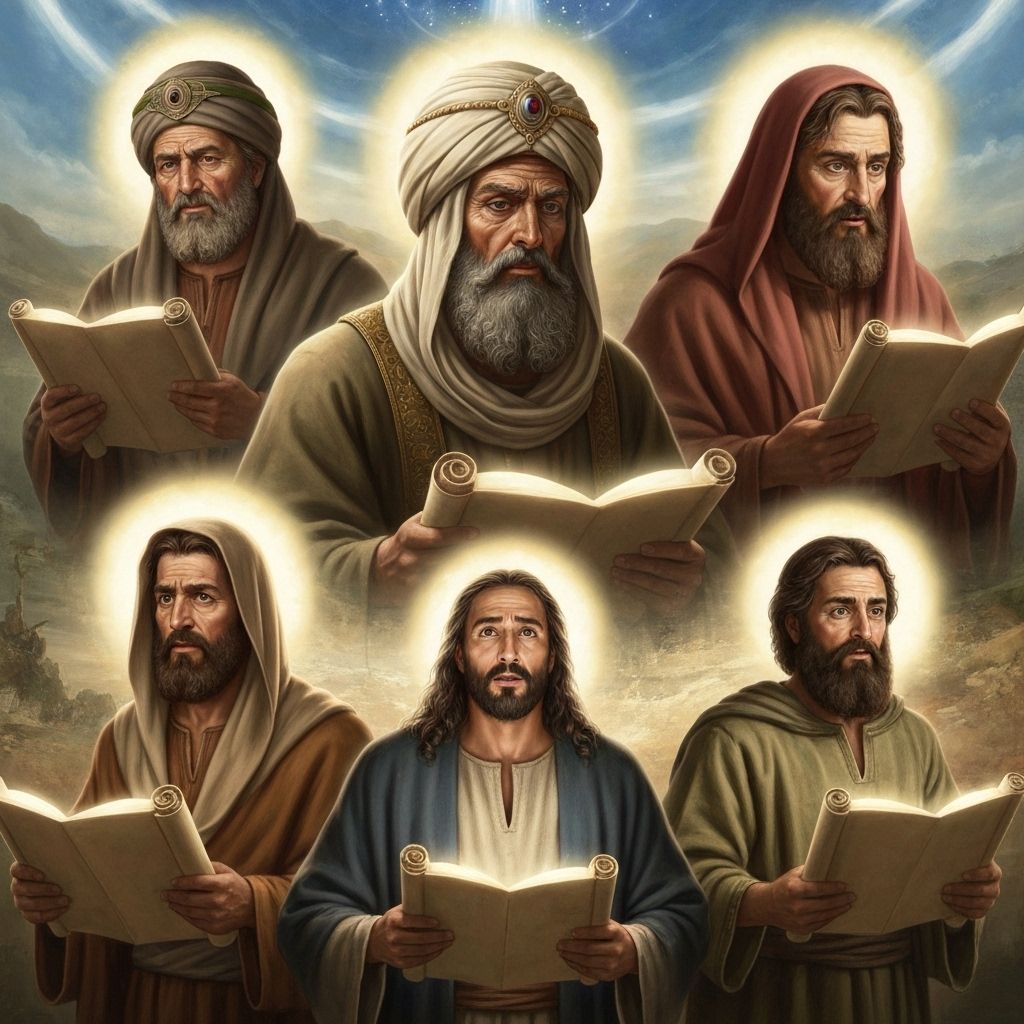3-Minute Summary
The Words of the Torah Explained with Help from Rashi and Ramban
Rashi (1040-1105) was a medieval French rabbi whose commentary on the Torah and Talmud is considered essential reading. His explanations focus on the plain meaning of the text and are known for their clarity and accessibility.
Ramban (1194-1270) was a Spanish rabbi, physician, and philosopher who provided deeper mystical and philosophical insights into the Torah, often building upon Rashi's work while adding his own profound interpretations.
Parashat Vayeshev opens with Jacob's settlement in Canaan and the introduction of his favorite son, Joseph, who will become the central figure in the remaining chapters of Genesis. Jacob's favoritism toward Joseph, demonstrated through the gift of a special coat, creates family tensions that will have far-reaching consequences. This favoritism reflects Jacob's own experience of being favored by his mother Rebecca, suggesting that family patterns often repeat across generations and that parental preferences can create lasting family dynamics.
Joseph's dreams of ruling over his brothers and parents represent divine revelation about his future role, but his immature presentation of these dreams to his family creates resentment and hostility. The dreams themselves are prophetic and accurate, but Joseph's lack of wisdom in sharing them demonstrates the importance of timing and sensitivity in communicating divine messages. His brothers' negative reaction shows how divine truth can be rejected when it's presented in ways that threaten others' status or security.
The brothers' conspiracy to kill Joseph and their eventual decision to sell him into slavery represents one of the most dramatic examples of family dysfunction in the Torah. Their jealousy and hatred toward Joseph, while understandable given their father's favoritism, leads them to commit a terrible crime against their own brother. This story reveals how family conflicts can escalate to dangerous levels when they're not addressed with wisdom and compassion.
Judah's suggestion to sell Joseph instead of killing him shows the way that greed can sometimes serve as a moderating influence on violence, but it also demonstrates how financial motives can lead to other forms of harm. The brothers' decision to dip Joseph's coat in blood and present it to Jacob as evidence of his death shows their cruelty toward their father and their willingness to cause him pain to achieve their goals.
Jacob's grief over Joseph's apparent death demonstrates the profound impact of family conflict on parents and the way that children's actions can cause lasting pain to their parents. His refusal to be comforted shows how grief can become a permanent state when there's no resolution or closure to the source of pain. This grief will continue until Joseph is revealed to be alive many years later.
Joseph's experience in Potiphar's house demonstrates his integrity and his ability to maintain his values even in a foreign environment. His success as a servant shows that divine blessing can operate through human effort and competence, and that righteous people can prosper even in difficult circumstances. His resistance to Potiphar's wife's advances shows his commitment to moral principles even when they conflict with immediate opportunities or threats.
Potiphar's wife's false accusation against Joseph and his subsequent imprisonment represent the way that righteousness can sometimes lead to persecution rather than reward. Joseph's imprisonment shows that divine blessing doesn't always protect from injustice in the short term, and that faithful people may face false accusations and unfair treatment. His continued integrity in prison demonstrates his commitment to righteousness regardless of circumstances.
Joseph's ability to interpret dreams in prison shows his growing spiritual maturity and his recognition of divine gifts and responsibilities. His accurate interpretation of the cupbearer's and baker's dreams demonstrates his connection to divine wisdom and his willingness to use his gifts to help others. His request to the cupbearer to remember him shows his hope for divine intervention while maintaining his faith in divine timing.
The cupbearer's forgetfulness of Joseph's request demonstrates how human promises and commitments can be unreliable, and how divine timing often differs from human expectations. Joseph's continued patience in prison shows his growing spiritual maturity and his understanding that divine purposes unfold in their own time, not according to human schedules or desires.
The parsha concludes with the beginning of Judah's story, which will become significant in the Joseph narrative. Judah's separation from his brothers and his encounter with Tamar introduces themes of responsibility, repentance, and the way that divine purposes can work through unexpected circumstances and relationships. This story will eventually connect to Joseph's story and show how divine redemption can emerge from the most unlikely sources.
Vayeshev teaches us about the complexity of family relationships, the way that divine plans often unfold through difficult circumstances, and the importance of maintaining integrity and faith even when facing injustice and hardship. Joseph's story shows that divine purposes can work through the most unlikely means and that what appears to be tragedy may actually be part of a larger plan for blessing and redemption.
The parsha also teaches us about the importance of wisdom in communication and the way that family conflicts can have far-reaching consequences. Jacob's favoritism, Joseph's immature sharing of his dreams, and the brothers' violent response all contribute to a chain of events that will ultimately serve divine purposes, but that cause tremendous pain and suffering in the process.
Joseph's continued faith and integrity throughout his trials demonstrate the way that spiritual growth can occur even in the most difficult circumstances, and that divine blessing can manifest in unexpected ways. His story prepares us for the dramatic events that will follow and shows how individual faithfulness can contribute to larger divine purposes that benefit many people.


